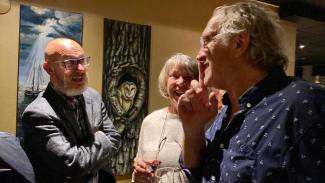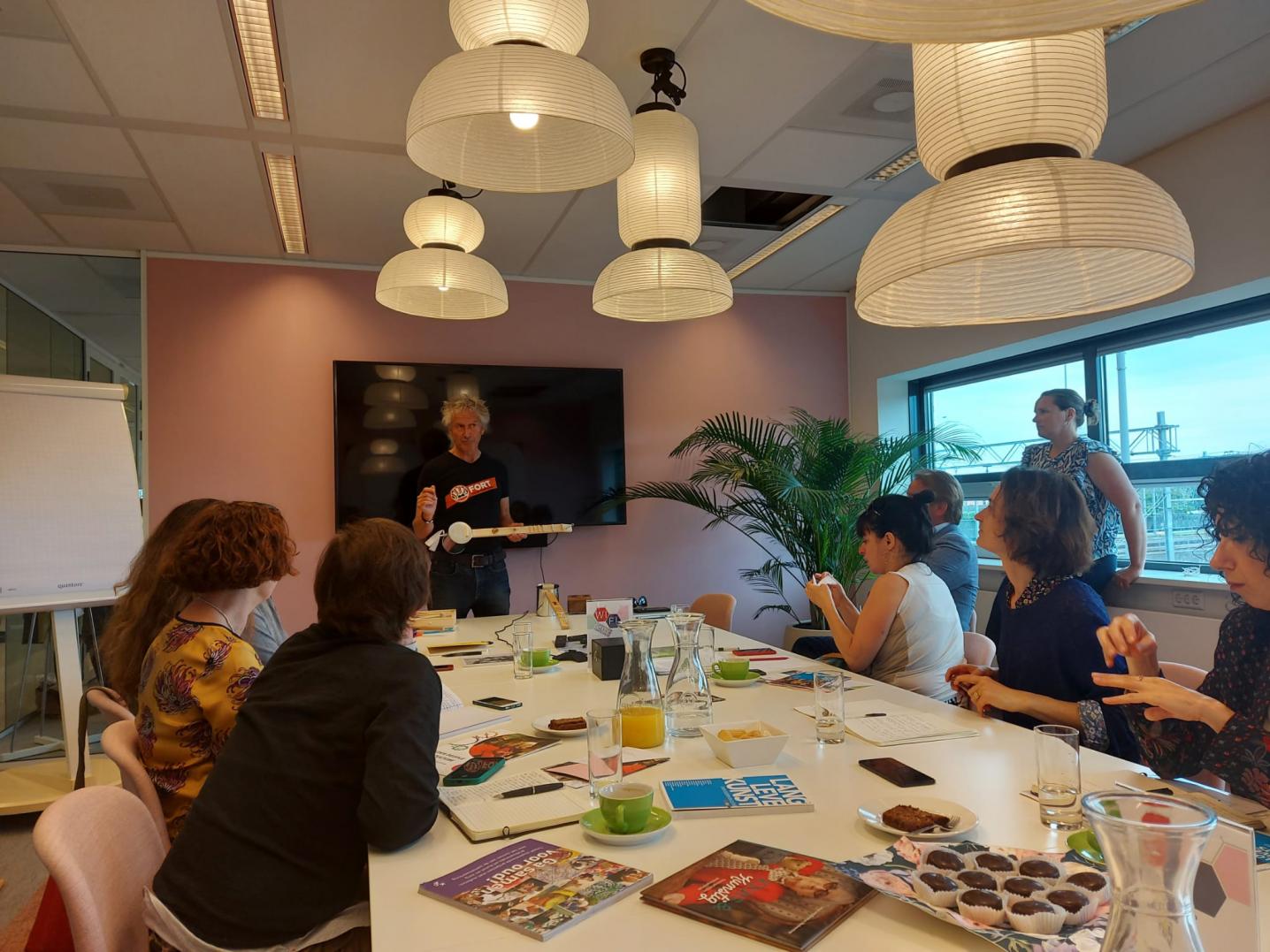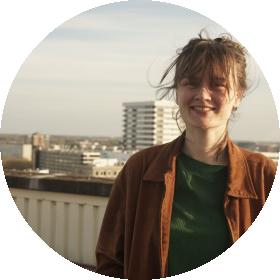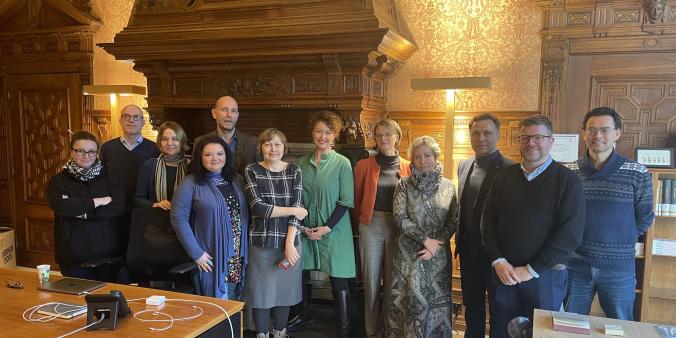
In May and June 2022, the Dutch embassy in Rome and the Consulate-General in Milan teamed up with DutchCulture and local partners to organise two visitors programmes to the Netherlands. DutchCulture's Minke van Schaik interviewed Babs van Lieshout, cultural officer in Rome, about gained insights and the background of the programmes.
While the first visitors programme focused on multilingualism, the second was centred around the topic creative ageing. Can you tell a bit more about these focus areas?
“With multilingualism, we are aiming to focus on identity and diversity. There are 12 officially acknowledged minority languages in Italy, such as Ladin and Sardinian, with a wide range of speakers. In the Netherlands, we have a similar though less diverse landscape, with Frisian being the only officially acknowledged and most spoken minority language. I think these languages are all part of distinctive identities that enrich society, and all these languages are used and stimulated in a very rich cultural sector.
With the theme of creative ageing we intend to find cultural projects that reflect on - and give solutions to - our community that is getting older and older. We support cultural projects aiming to counter loneliness or stimulate intergenerational dialogue, and that help people with conditions related to ageing such as Alzheimer’s and Parkinson's. The added value from a policy perspective is that it fits multiple disciplines.
Projects that come from creative industries or architecture for example can focus on improving inclusion by making architectural changes in a neighbourhood or in housing facilities for the elderly. How can designers help the elderly mobilise their talents and their wisdom to find a better, more central place in society? In the Netherlands, you see that these social issues are more often approached through the creative industries, and in Italy more from the performing arts for example by theatre ensembles that make inclusive plays to connect generations, or from the domain of heritage. During the programme, we visited museums of the Unforgettable Network that offer specialised programmes for people with Alzheimer’s and other forms of dementia. Likewise, it was very valuable for them to hear about the developments in Italy, and to be able to meet in person with the people who have been making similar programmes in a different country.
While in the Netherlands these developments are mostly supported by the Rijksfondsen (governmental funds) and through specific policies, in Italy these initiatives come from the cultural sector itself, from the bottom up. I think that is why it is specifically interesting for the two countries to learn from each other because, despite this difference, they run into the same issues: finding funding, measuring impact, long-term sustainability… et cetera.”

The focus areas seem quite well-researched to stimulate exchange between Italian and Dutch culture. Can you elaborate on this?
“Until 2020, our funds were reserved for the areas of design, literature and architecture, because the Netherlands excels in these disciplines and Italy offers many opportunities in these fields. Italy is known for relevant cultural platforms such as the Salone del Mobile, the Biennale of Architecture and the Salone del Libro. The other 20 per cent of our budget was reserved for third parties’ requests, enabling us to support other disciplines such as performing arts. However, we noticed the shortcomings of this approach as we felt the need to play into more recent trends.
For this reason, the Dutch Embassy in Rome and the Consulate-General in Milan expanded their focus to six additional areas: ageing, multilingualism, child and youth culture, identity and inclusion, cooperation with Flanders and digitisation.
For multilingualism, the situation is a bit different from the other areas, as we are working with existing networks, such as the NPLD - the European Network to Promote Linguistic Diversity - that connects these languages to one another. It’s easier to link together partners when they already know each other and have been in contact. Only a few months after the visitors programme on multilingualism, there are already some first results to it.
Some of them are already taking shape, for example, the Teatri Stabil Furlan, a theatre company that performs in Friulian, one of the minority languages of Italy. The last evening of the visitors programme included a performance of Wat Soesto!, a play by the Frisian theatre company Pier21. Despite not being able to fully understand the play, as it was written and performed in Frisian, the companies are currently looking into the possibilities of translating the work into Friulian and performing the Friulian version in the theatre of Udine where the company is based.
We were also looking to connect partners on a policy level around digitisation and education regarding questions like how we can integrate a minority language into social media. These are all areas in which we can learn from each other.”
How do you reflect on these programmes from a personal perspective?
“I think these visitors programmes are especially useful when you are exploring new territory like we are doing in these areas. Of course, we started by commissioning sector reports, getting to know various new partners online and through open calls. But when you’re new in a network, it really helps to have something to take the extra mile, by organising something like a visitors programme. You can really build a certain trust by inviting people to come and experience Dutch initiatives. I think you become so much more integrated into a topic in a short period of time by listening and by finding out the beneficial areas of international cooperation. I think all partners have gained a certain trust in and awareness of what is going on in the Netherlands, which really helps. And you can also see they are quite honoured to be a part of these programmes. This appreciation strengthens our bond with the partners.”



